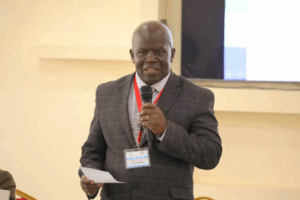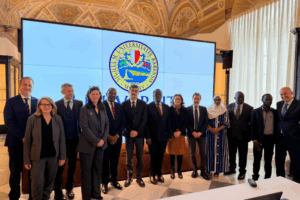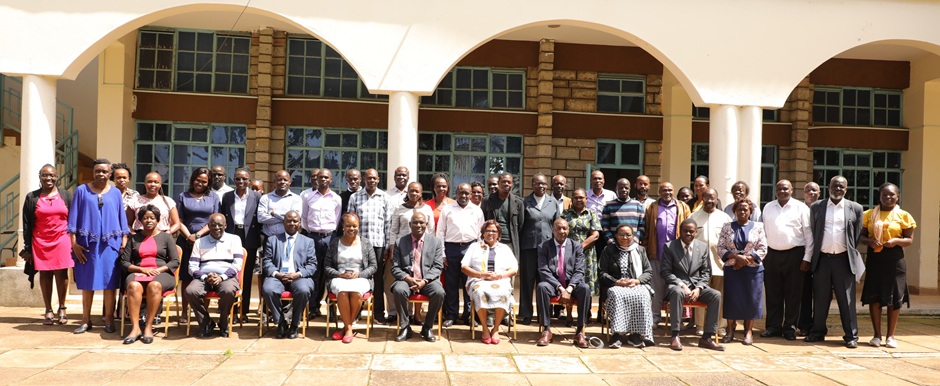
MMUST’s School of Public Health, Biomedical Sciences and Technology Embarks on Curriculum Review to Enhance Relevance and Marketability
In a bid to enhance the relevance and marketability of its academic programmes, Masinde Muliro University of Science and Technology’s School of Public Health, Biomedical Sciences and Technology (SPHBST) convened a two-day Curriculum Review Training Workshop from 15th-16th May, 2025. The workshop aimed to evaluate and update the curricula for the Bachelor of Science programs in Health Promotion and Sports Science, as well as Medical Laboratory Science. The event was graced by the Deputy Vice Chancellor for Administration and Finance- Prof. John Kuria Thuo, who represented the Vice Chancellor- Prof. Solomon Shibairo. Faculty members, curriculum experts, and university representatives collaborated to align academic programs with the evolving demands of the 21st century global market.
Addressing the participants, Prof. Thuo noted that the School stands as one of MMUST’s key faculties hosting flagship programs that are market-driven and sustainable. He highlighted the increasing demand for health sciences courses and stressed the necessity of aligning academic offerings with current market trends. Commenting on the availability of resources to facilitate competency-based education training and learning, Prof. Thuo urged the heads of departments to make optimal use of existing resources and to advocate for adequate support to ensure effective curriculum implementation. “This workshop provides an essential platform for faculty to reflect, challenge existing paradigms, and align our programs and curricula with emerging industry demands,” he stated.
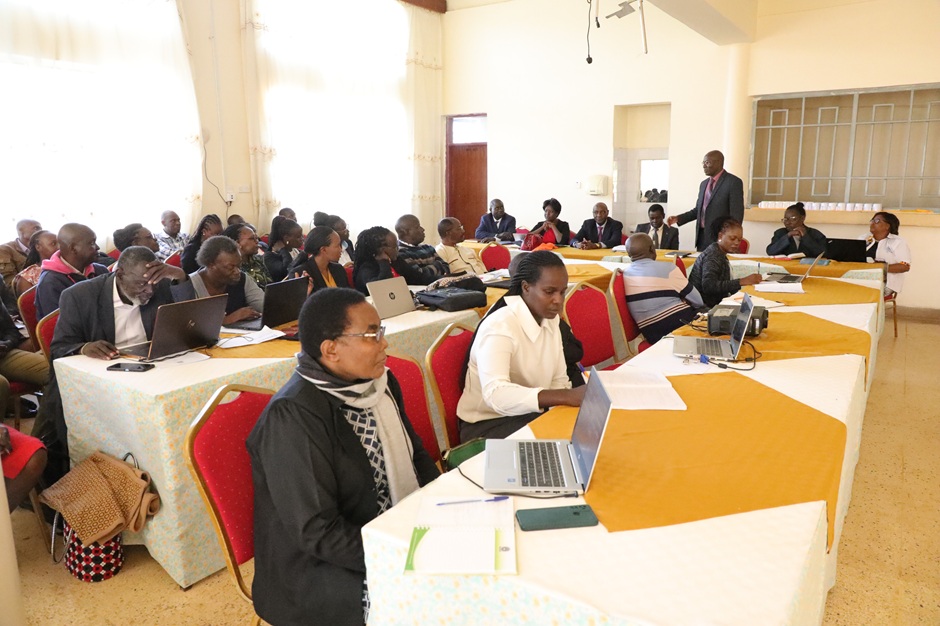
Prof. John Kuria Thuo, the Deputy Vice Chancellor (Administration and Finance), addresses participants on behalf of the Vice Chancellor during the workshop.
Representing the Deputy Vice Chancellor for Academic and Student Affairs, the Director of Quality Assurance, Prof. Danstone Lilechi, encouraged faculty to understand and gradually embrace the principles of CBC and CBET, acknowledging that transformation is a gradual process. “I am confident that by 2029, the University will have conducted additional workshops to strengthen its preparedness for CBET,” said Prof. Lilechi, assuring faculty of continuous support from the Division throughout the transition.

Prof. Danstone Lilechi, the Director of Quality Assurance speaks to the participants on behalf Deputy Vice Chancellor (Academic and Student Affairs.
Similarly, the Registrar of Academic Affairs, Prof. Judah Ndiku commended the Dean for organizing the workshop, noting that its purpose transcends fulfilling performance contracting requirements. He acknowledged the School’s progress in adopting CBE approaches, highlighting its emphasis on practical learning. “I believe that the practical orientation in your curricula, even before CBC, will facilitate a smoother transition to the new educational paradigm,” he noted.
In her presentation, ‘Re-imagining the Curriculum for the 21st Century: Preparing Students for a Global World’, the Ag. Director Curriculum Review and Development, Dr. Teresa Okoth emphasized the need for curricula that respond to globalization and the evolving demands of modern learners. “The transition from the Competency-Based Curriculum (CBC) to Competency-Based Education (CBE) calls for a paradigm shift from content-heavy, rigid curricula to more flexible, interdisciplinary programmes that accommodate STEM, social sciences, arts, and sports. I encouraged you to re-imagine your pedagogical practices, embrace flipped classrooms, project-based and inquiry-based learning approaches, authentic assessment tasks, and open-book examinations,” she stated. She also stressed the importance of redesigning curricula to focus not only on knowledge acquisition but also on developing practical skills and attitudes, while considering the individual differences of learners.

A section of participants keenly follow discussions.
The Dean School of Public Health, Biomedical Sciences and Technology, Dr. Evans Raballah expressed appreciation to the participants for their engagement in the curriculum review process. He underscored that a relevant and responsive curriculum is central to the University’s mandate. “Our core mandate as a University is to train students. However, without an updated and responsive curriculum, we cannot attract or effectively educate them. I urge you to be bold and open-minded, challenge outdated structures and let go of the traditional 8-4-4 model. Embracing change is essential for meaningful reform,” urged Dr. Raballah.
Notably, Dr. Lydia Mucheru- Senior Deputy Director in charge of Planning, Research, Quality Assurance and Partnerships at KICD took the participants through the structure and layout of the CBC curriculum scope and sequence. She emphasized the need to transition from traditional learning objectives to clearly defined learning outcomes. Speaking to the issue of unemployment, Dr. Mucheru encouraged educators to effectively train students in entrepreneurship, and foster creativity, innovation, and problem-solving skills. She advocated for practical support to help students convert their skills into income-generating activities.
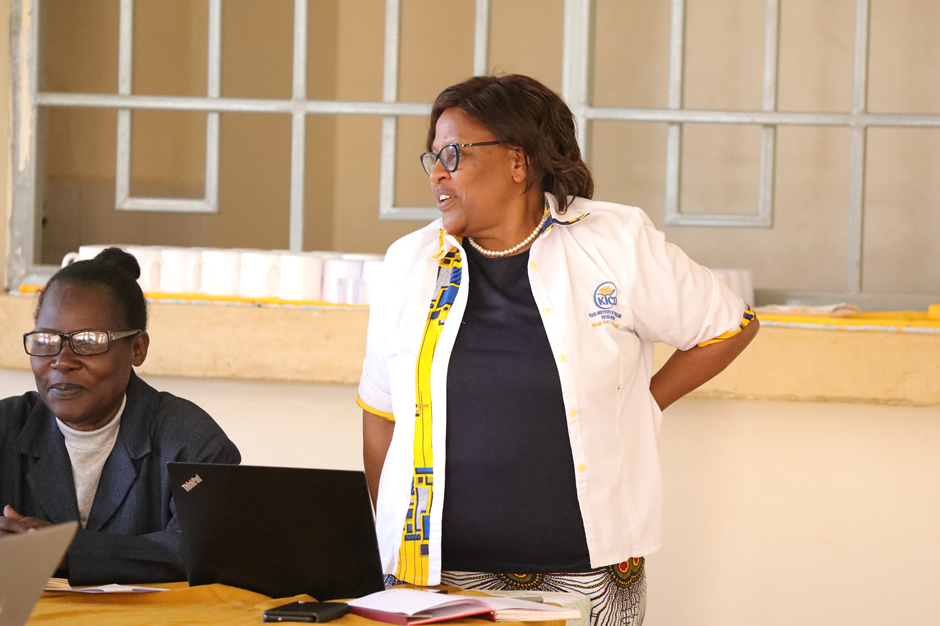
Dr. Lydia Mucheru- Senior Deputy Director in charge of Planning, Research, Quality Assurance and Partnerships at KICD at the event.
With the Competency-Based Curriculum reshaping basic education in Kenya, universities must adapt to meet the evolving needs of incoming students. Through events such as this, MMUST is progressively embracing these changes by committing to curriculum reform, which will ensure the institution remains relevant and responsive in the dynamic global setting.
By Caren Nekesa and Joy Agnes
Photos by Shiundu Masafu

